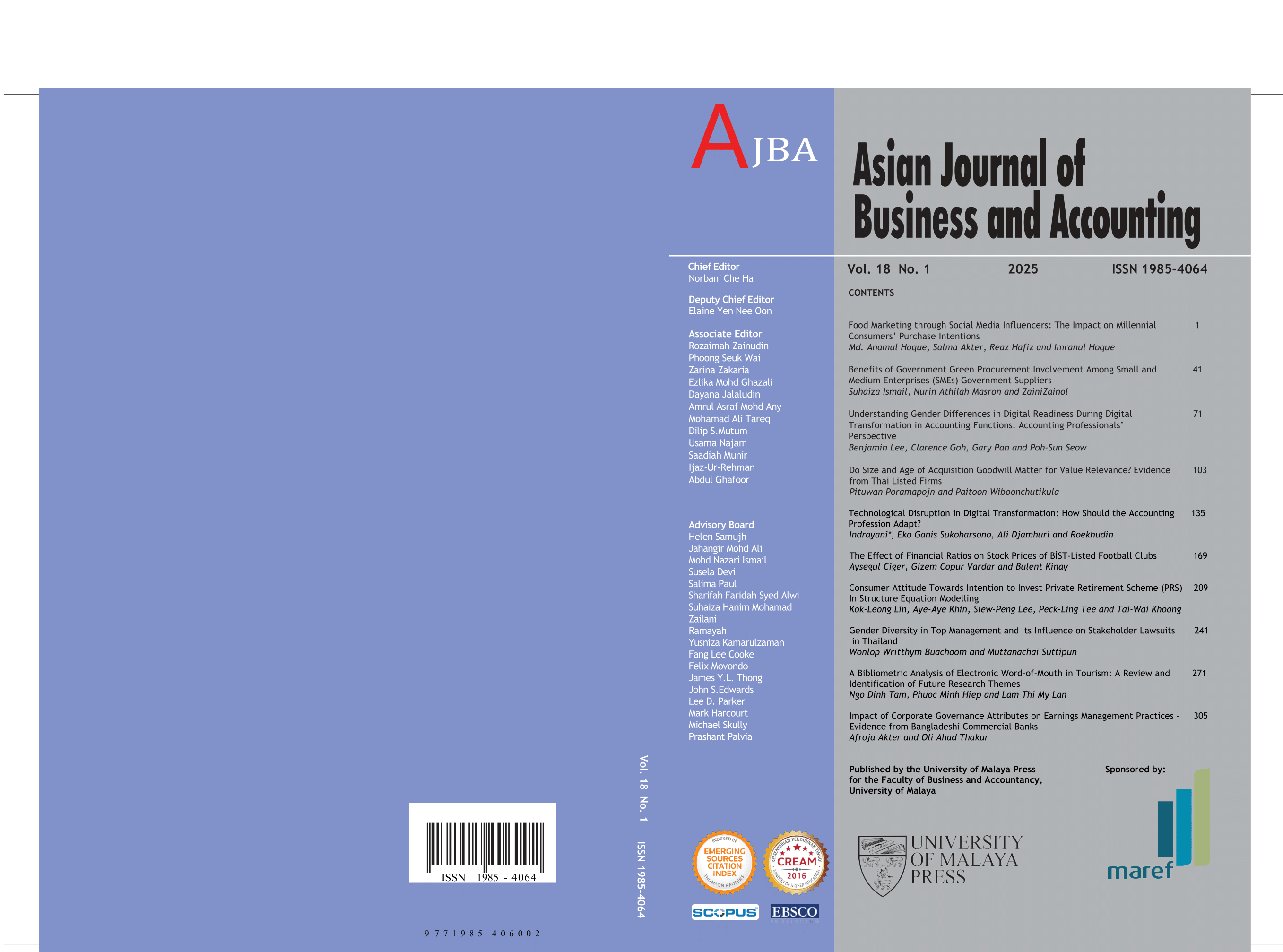Consumer Attitude Towards Intention to Invest Private Retirement Scheme (PRS) in Structure Equation Modelling
Main Article Content
Abstract
Manuscript type: Research paper
Research aims: The study examines the factors influencing the intention
to invest in Private Retirement Schemes (PRS), with attitudes as
moderating variables.
Design/Methodology/Approach: A quantitative approach was employed
using a structured Google Form survey. Data on PRS investment intention
were collected from respondents, assessing social (firm-generated/usergenerated
social media, social influence), marketing (transaction cost,
advertisement), and personal factors (brand image, financial literacy,
risk tolerance, trust, investment experience). Path analysis was used to
examine relationships among variables and test the moderating effects
of attitudes.
Research findings: Attitudes mediate the relationship between the
determinants and PRS investment intention. Advertising, financial
literacy, and social influence significantly impact attitudes, shaping
investment desire.
Theoretical contribution/Originality: This study integrates the theory of
planned behaviour (TPB), life cycle theory (LCT), and symbolic interaction
theory (SIT) to provide a comprehensive understanding of the factors
influencing PRS investment. It extends TPB by confirming attitudes as
a mediating factor, incorporates LCT to explain investment behaviour
across different stages of life, and applies SIT to explore the role of
social influences and perceptions in shaping investment intentions. This
multidimensional approach contributes to retirement investment research
by offering a holistic perspective on the determinants of PRS investment.
Practitioner/Policy implications: Findings suggest policymakers promote
PRS through targeted advertising, financial literacy initiatives, and
leveraging social influence, with tailored strategies for different income
groups.
Research limitation: The study may overlook systemic factors, lacks
generalisability, and excludes psychological issues.
